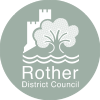From 1st June 2019 private landlords and letting agents (not housing associations) are now banned from charging a ‘relevant person’:
- tenant
- licensee
- guarantor
- any person acting on the tenant/licensee’s behalf (not a local authority)
Any fee unless it is a ‘permitted payment’ for:
- rent
- tenancy deposit (up to a maximum of five weeks rent)
- holding deposit (up to a maximum of one weeks rent)
- a fee in the event of a ‘relevant default’
- damages for breach of agreement
- in connection with tenant’s request for a variation, assignment or surrender of a tenancy
- in respect of council tax, utilities, communication services and TV licence
The Act bans payments of fees for:
- an assured shorthold tenancy
- a licence to occupy housing (except accommodation found through Homeshare)
- a tenancy granted to a student by a specified educational institution
From 1 June 2020, the ban on fees applies to all private rented tenancies regardless of when they started. Any fee in an agreement requiring the payment of a prohibited fee will no longer be binding.
Any landlord/agent who has charged a relevant person a prohibited payment can be sanctioned. These include:
- civil payments of up to £5000 for an initial breach
- civil payment of up to £30,000 or prosecution for a subsequent breach
- restriction on the service of a section 21 notice
- application by relevant person to the First-tier Tribunal to recover unlawfully charged fees.
- A landlord will not be able to evict the tenant using the section 21 eviction procedure until they have repaid any unlawfully charged fees or returned an unlawfully retained holding deposit.
This will be enforced by East Sussex County Council Trading Standards

